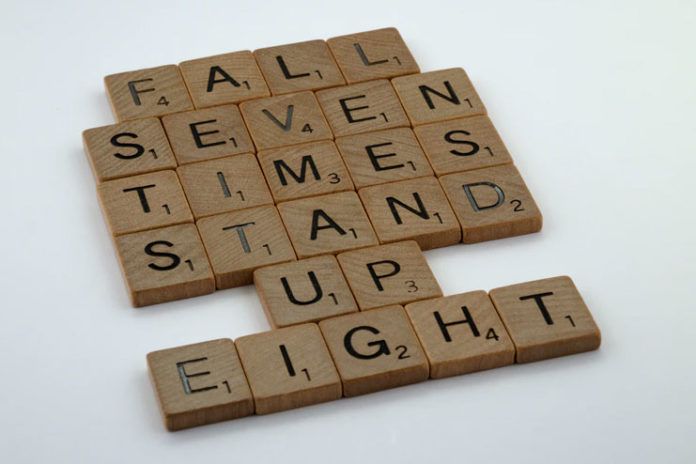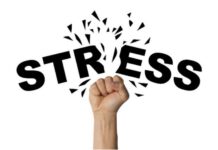Affiliate Disclaimer
Some links in this article are affiliate links. We may earn a small commission if you make a purchase through these links, at no extra cost to you. We only recommend products we find useful to our readersThe Coronavirus Pandemic (COVID-19) has left us all in a bad state of resilience in the sphere of mental health. And we need coping strategies that lead us to “affective temperaments”. The five affective temperaments (or as recent research uses “CoVID-19 variables”) that need to be addressed are depressives, cyclothymic, hyperthymic, irritable, and anxious symptoms. Although, these have also been linked to genetic variation in both healthy and “patient populations”. Best Ways to Cope is, Recover your Resilience and fight with these! Confused what it is?
Resilience is an active process and it is not an individual’s journey, but also a state of affairs, and that means it directly impacts the environment. So, even though a lot of us were not genetically prone to depression or mental illness, during the pandemic we did get depressed a lot. That is why a healthcare infrastructure does require an already in place, satisfactory, community control service during such an unthought event.
Some of the methods to better the state of resilience are mentioned in this article, that can help the community, and individuals at the workplace, during this time of lockdown and personal loss. We will see below, how music, reading and establishing intellectual capital during a stressful event can contribute to building a strong resilience.
What is resilience?
 A state where the demands of the situation exceed our available resources to cope sufficiently with a stressful event, is a simple way to define this state. Resilience requires a method from us so that we can come out of the stressful space/time. If we don’t have a straightforward mechanism laid out for us in front of certain stressors we can be(come) psychologically, physically, and socially dysfunctional.
A state where the demands of the situation exceed our available resources to cope sufficiently with a stressful event, is a simple way to define this state. Resilience requires a method from us so that we can come out of the stressful space/time. If we don’t have a straightforward mechanism laid out for us in front of certain stressors we can be(come) psychologically, physically, and socially dysfunctional.
Stressors, as a means to evaluate everyday resilience, are still used in business occupational models to see how valuable an employee is to the company. And resilience is that key through which a strong individual adapts with changing social-ecological systems, manages their corporate lives, and transforms. This needs an inherent, but also a learnt system of thoughts, wherein, security is definitely a major stressor.
For example, for a frame of reference, let’s take the mental breakdowns at home and workplace during the COVID-19 pandemic. It has been compared by the United Nations to the mass trauma caused by World War II. There has been such a huge disruption in the sphere of the money market, loss of jobs, that means, “the economy” fell apart for months, and also the healthcare infrastructure was criticized by scientists, healthcare workers and practitioners.
But, we also understand that the catastrophe is indeed man-made, and therefore, can be handled by them.
Humans’ interaction with the environment is a kind of socio-ecological process and it can sometimes be described through money matters, as much as a biochemical reaction in the brain. But in this article we will focus on how to cope with everyday stressors to recover from resilience. So that, you are prepared, and can bounce back as positively as possible.
Mental health inferences regarding “emergent resilience” are used in various ways to understand culpability and susceptibility of a person responding to a difficult situation at the workplace or at home. But we cannot really dissect the workplace, from the person’s atmosphere. As most workplaces demand psychological health as the salient indicator of a good employee. That implied, he or she must have a good relationship with their parents, wife, husband and children at home too.
How to recover from resilience?
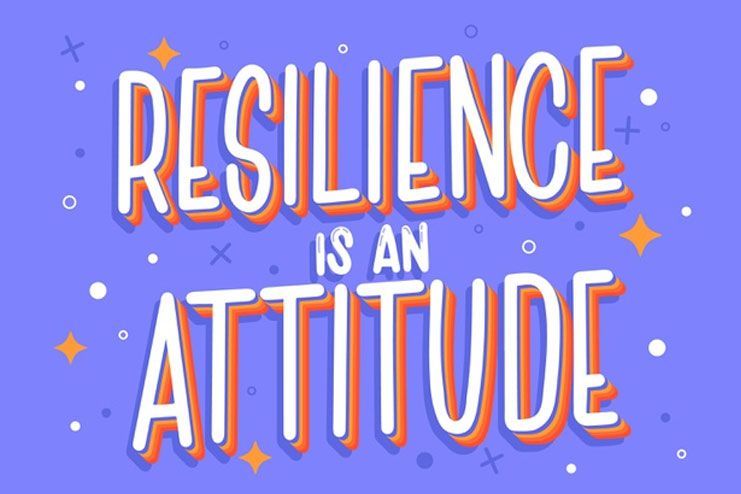 In psycho-therapy at an individual level approach, cognitive behaviour therapy is still more prevalent as a way to spring the mentall-ill person back to life. But below you will find more self-reliant techniques that can help you to build strategies that are useful for long-term survival of the resilience plan.
In psycho-therapy at an individual level approach, cognitive behaviour therapy is still more prevalent as a way to spring the mentall-ill person back to life. But below you will find more self-reliant techniques that can help you to build strategies that are useful for long-term survival of the resilience plan.
First and foremost important is “Capacity building”- one of the most common and adopted methodology for the recovery from resilience for the community and individual.
Resilience counselling has grown post recession (2007) and according to experts’ counsel “one-on-one” training is indeed best for resilience building.
The meanings and definitions of resilience are too many. And yes, mostly the world that we create for building our career journeys in the “Get more in less” era, is indeed better, when we are at least mindful of our actions. Slowly this “repetitive mindfulness” becomes a habit.
Acceptance and Commitment Therapy (ACT) uses acceptance and mindfulness strategies to develop psychological resilience through six core processes: Acceptance, cognitive defusion (changing one’s relationship with thoughts), being present (mindfulness), self-as-context, values, and committed action. Various studies on AcT express the fact that “to promote compassion, the intervention introduced ‘caring practice’ and ‘mindful listening’.”
Part of the same, or can be viewed differently is self-regulation of stress responses via technology to achieve a more coherent physiological state. Psychologist Stuart Shanker wrote in 2016: “Self-control is about inhibiting strong impulses; self-regulation [is about] reducing the frequency and intensity of strong impulses by managing stress-load and recovery. In fact, self-regulation is what makes self-control possible, or, in many cases, unnecessary.”
Self-control is required in situations where we are not in a position or condition to lose self-control, but if we do, this behaviour can be changed. Especially, if this reaction always back-fires.
It is done through planning, monitoring and reflecting on our own actions.
- In the planning phase, do your own self-assessment and learn how to pick the best strategies for success from the internet;
- And in the monitoring phase, get experience by implementing these strategies, choose and make real-time adjustments to your plans as needed;
- Also in the reflection phase, synthesize everything. Learn and reflect on your own experience, learn what works for you and what should be altered or replaced with a new strategy.
Top 18 Methods for Becoming mentally strong and Recover Resilience
 Next is ‘Transforming Stress’ into something which is positive in response. This helps in relieving worry, fatigue, and tension. For starters, the below practices are founded by scientists working at the Marion Institute of Functional Medicine to be useful in curing, anxiety, hypertension, depression, heart disease, and high blood pressure:
Next is ‘Transforming Stress’ into something which is positive in response. This helps in relieving worry, fatigue, and tension. For starters, the below practices are founded by scientists working at the Marion Institute of Functional Medicine to be useful in curing, anxiety, hypertension, depression, heart disease, and high blood pressure:
- Go for a walk where there are a lot of trees and greens.
- Spend time with supportive friends or family members.
- Listen to music—or dance, do something that you enjoy.
- Look at something you consider beautiful (i.e., art or nature)
- Make and eat a healthy meal by yourself.
- Try including yoga, tai chi, or qi gong in your daily plan.
- Whenever you feel panic, breathe deeply and center yourself
- Adopt an active hobby like water aerobics, bicycling, or gardening, they will rejuvenate you and you will feel productive
- Journal about positive things for which you are grateful
- Write a letter to someone you care about when you feel lonely
- Scan your body and be aware of how you feel when you are low
- Get a massage, sit in a sauna, or soak in a hot tub, it is completely okay to pamper yourself sometimes
- Be creative (i.e., adult coloring books, watercolors, sketch, crochet, write, draw)
- Sleep until you wake up naturally
- Give yourself a hand or foot massage every now and then
- Visualize a place you find relaxing (like a beach, a park, a childhood room, etc).
- Express gratitude to someone at least once in a while
- Watch a funny movie or read a funny book
When you practice Resilience, what actually Resilience provides you back?
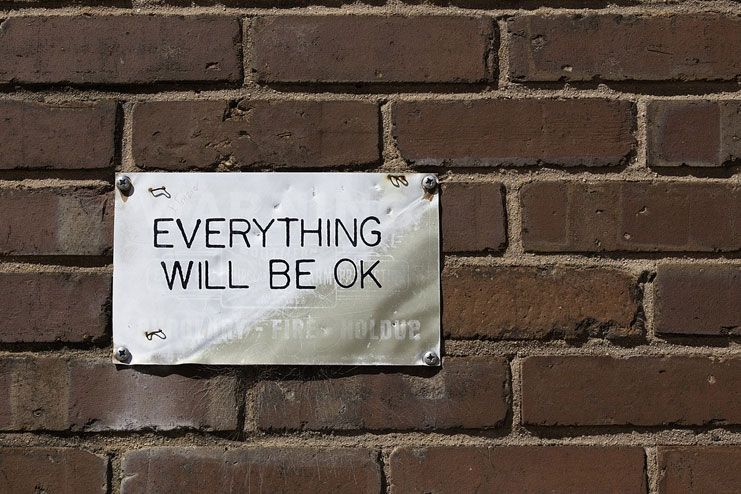 So, why do we need to build the “mental muscle” which gives us resilience and why is recovery from resilience so important. My theory is if you invest in something, it gives back returns. If you love yourself, as much as you claim you care about others, the society, the destitute, the needy, etcetera, “heavy emotions” without any outcome. The resilient mental muscle will help you in the following ways:
So, why do we need to build the “mental muscle” which gives us resilience and why is recovery from resilience so important. My theory is if you invest in something, it gives back returns. If you love yourself, as much as you claim you care about others, the society, the destitute, the needy, etcetera, “heavy emotions” without any outcome. The resilient mental muscle will help you in the following ways:
#1.Building Social Support:
/social-support-emotional-friends-Robert-Daly-56a906445f9b58b7d0f7688a.jpg)
Thinking about what we lack and how the push and pull effect is connected with our surroundings helps us understand why it is important to keep in touch with friends. Remembering past times, good times with friends can be beneficial for the depressed or anxious person. Depravity and social exclusion can lead to feelings of loneliness.
#2. Boosting Morale:

Sometimes, at the workplace we don’t get enough appraisal, face harassment, bullying and competition that can bring our morale down. Having a low morale can affect our thinking and performing abilities in a disastrous way. To keep up the morale, it is very important to keep yourself fit, that is exercise, focus, take breaks and do meditation.
#3. Become Optimism:

Optimism is a thought process, not everybody is optimistic in nature. Some people give pessimism higher ground because they feel safe thinking of the worst. But research shows that optimistic people have a much better resilience in times of difficulties.
#4.Cope Self-Efficacy:
Comparing yourself to others and competing with others in an unknown race is of no use to you. You have to be able to assess yourself and your position in a specific social context, for that, presentism, is very important. Such is the act of meditation, as it forces us to keep trying to keep a blank mindspace although, there is a lot happening in there.
#5. Get Work satisfaction:

If you are overthinking or getting affected by what people think about you and your status, it can be the first signal that now, you are going to get dissatisfied with your work environment. You have to get it together and understand the importance of measurement through your own scale. We all have different lives.
#6.Better Work–Life balance:
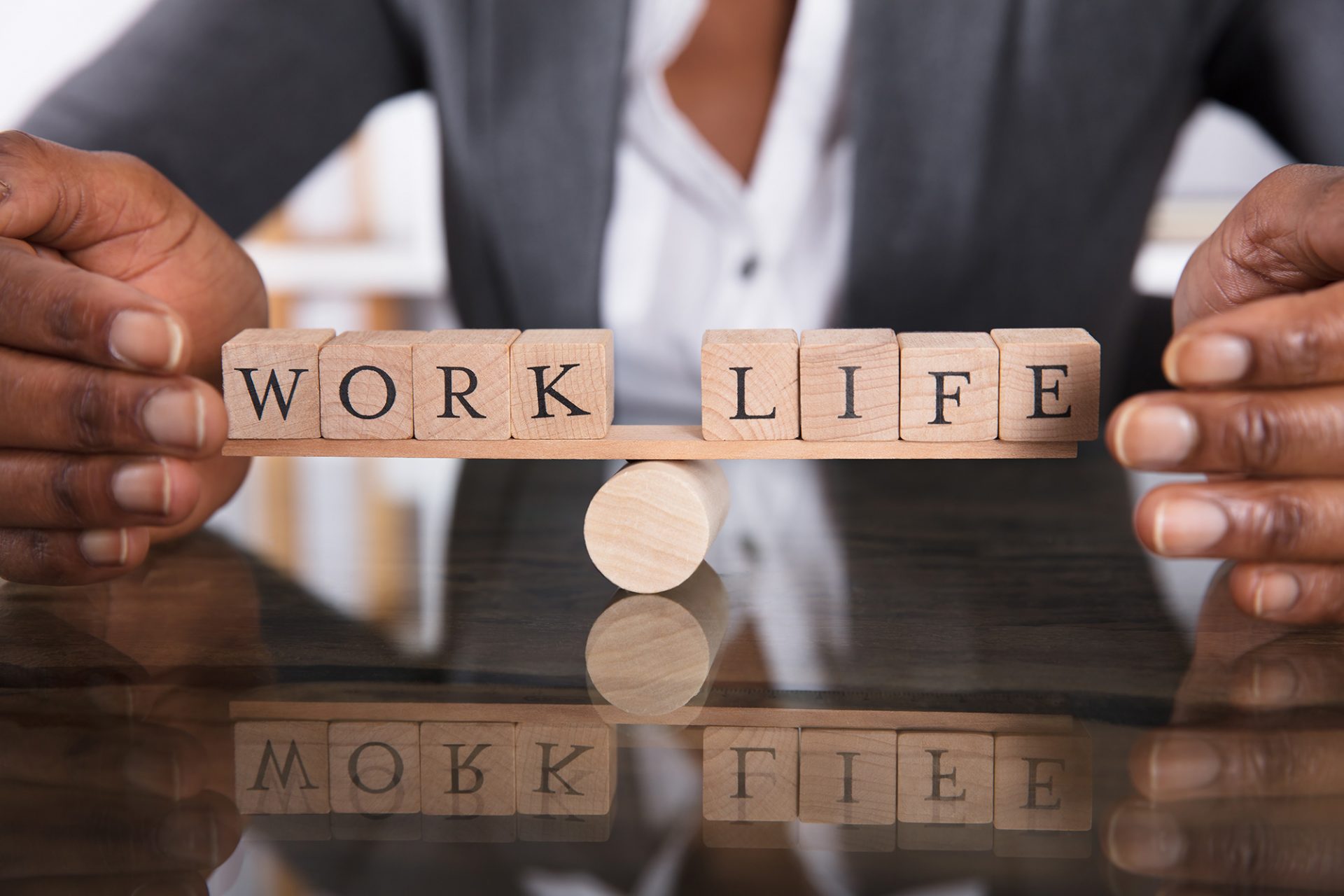
These thoughts are over-used in the corporate world. It is very important that we do things that are good for us, our bodies and minds, daily. Like exercise, waking up on time, and then practicing empathy towards self and others. Working beyond hours of work may not ensure success, it can also mean, you are not yet sorted where you are with the work. Your daily schedule should be something doable.
#7. Stay Peaceful For Longer:

In the competitive world that we live in today, we might not be able to have a fully mapped out far-fetched plan about how to be peaceful. But know that peace is a construct. Have a vision board, for the next two-five years depending on your energy and push yourself towards achieving some of those goals. Having said this, peace means having the messiness and clutter in your head sorted out.
#8. Have Some Mental clarity:

As you begin some exercises that do good to you, may be a 5 minute exercise regime daily. Some reading, watching a film, or dancing, which earlier might have seemed out of the way you will see eventually, that doing little things helps you focus better on the real work when you get back to it.
#9. Make Goals Clear:
Let not goals decide who you are. You are going to work towards them everyday religiously, whether through self-talk or force yourself, if you are giving up. Talk to a friend about your goals, trust and share with people what you are thinking. Don’t rely only on yourself when you are thinking of a career objective.
#10.Learn Effective Communication:
Sometimes, it is okay to fumble with words in front of a competent authority. But try to pick up on why, where and how you are getting anxious and fumbling. You may want to seek counsel and good advice from a well-wisher or a therapist for this too. Communication skills are very important for a lively mind. It stimulates our senses and gives us some time of happiness.
#11. Further Social Skills:

When you take up a project or give somebody your word, stick to it. And finish it. Don’t stop or give up on it. This attitude will make you believe in yourself, and also, others will trust you more. Social skills are about table manners, and how you are walking and talking, it is also the content of the person you are. And as you will be working towards resilience recovery, this will surely help you.
#12. Mindfulness:

This has become a buzzword in social media and has a very affectual presence in our everyday lives now. The most important thing is to not wander in your head while you are at work. Rather, find time to make an itinerary for traveling and getting that done. Mindfulness while eating is also a great way to start seeing the effect of this technique. Do eat in silence and be aware of the portion and what you eat everyday to maintain a balanced and healthy diet.
#13. Self-compassion:
Be kind to yourself and appreciate yourself for how much you have been able to achieve. Look back and see where you have come today. Was it easy, fun, hard? While you give yourself targets, also, reward yourself, as you go by to remind yourself that life is a teacher. Don’t be hard on yourself and keep doing what you are doing.
#14. Positive outlook:

This does not mean that life does not have obstacles but remain positive that you will get the share that you deserve or you will fight for it. Justice and equity in corporate work, worklife is as important as in a court. We do feel the system has defeated us at imes, but a positive outlook helps us remain calm and fight our battles.
#15. Motivation:

Don’t let a good opportunity go away because you are lazy. Work hard and prepare for it. Prepare to impress the target. Think long-term and you will be able to see the pros and cons of every opportunity. Surround yourself with people who appreciate your work and understand what you. Don’t try to chase waterfalls. Sometimes, we miss the things that are right in front of us.
#16. Calmness:

As you have started preparing vision boards, plans, and practicing mindfulness at work, you will feel a sense of calmness. Do not confuse calmness with complacency. You have to keep dreaming and wanting things that do you and your loved ones good. You must have heard this one, round the corner, “keep calm and move on”.
#17. Resentfulness:

Don’t delve in past issues and let them bog you down. What has happened is over and the ruler is it’s never too late to start again, you are never too old. We only hear success stories. Hardly do we come across a story of struggle. But what we don’t know is that struggle is a part of life. People and ideas will keep on affecting us, we just learn how to deal with them.
#18. Anger management:

Even after you have done point wise, everything in the manual of happiness and greatness, it does not guarantee, life will become rosy and everything will change around you. There is a happy phase and there will be a difficult phase, here we are learning how to become mentally stronger for the coming time. The problem is mostly internal and introspection and idle time should be used in awareness of the problem. Articulate the problem well and solve it with somebody’s help or by yourself.
#19.Hope:

This is the nemesis of anxiety. But it actually collapses inside a person in a state of distress, like after getting fired, lays off and a marriage breaking off before taking off. There are innumerable reasons why a person gets hopeless. But remember you can ask for help and “Hopeful people do not wish – they imagine and act.”
#20. Self-esteem:

Once you are able to pull yourself together and come to a decision and act on it without fearing the outcome, meaning, you are able to take the risks which life has out on your way of the success you have planned, it means you are now on to the way to build a great self-esteem and people can learn from you. A sense of ownership is in short, what self-esteem feels like.
#21. Locus of control:
In a time/space of doubt, ignorance, high expectations and unknown outcomes where you have kept your locus of control, matters the most. Individuals with a strong internal locus of control interpret circumstances as being within their own ability to control. And therefore, feel confident in their ability to influence their future. Internal locus of control does hold more positive reviews than the switch of your mood swings on the responses initiated by somebody or something “out there”.
#22. Interpersonal relations:

As you find time for yourself and learn to love yourself as you love others and understand the law of nature, it is give and take (moderately). Your interpersonal communication and relationships will evolve and you will be able to make better judgments about perplexing issues which help people and and also for yourself. You will be able to help at the verge of breaking down in the face of adversity.
Conclusion
Resilience and recovery from resilience is very important as it is not an abstract notion. These strategies actually work and are tested by experts, scientists and psychologists. We need resilient systems to protect us in adverse situations. It is one way of working on life span longevity of people of all age groups above seven.
This is for those who take life seriously and want to change the way things are. If you get disturbed, frustrated and distracted easily these resilience recovery strategies are for you. Ideas are born out of an impulse but to keep it going and strong, we need a calm and resilient mental muscle. As the world is turning to “entrepreneurship” as a new worklife, it brings with itself, a new set of rules. So, every now and then, you may need to “Recover your Resilience”.
Recommended:
- 12 Best Ways To Practice Empathy And Make It Your Real Trait
- Spirituality For Stress Relief ! What’s The Tie-In? Awaken Your Mind!
- 15 Best Things To Do When You Feel Lonely
- 5 Types of Loneliness and The Ways To Overcome Every Type
- 11 Kind Ways To Show Gratitude At Work – Spread Goodness!
In this Article













